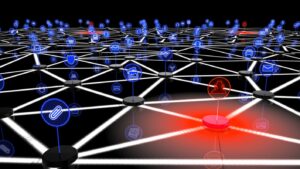
Helping End Smuggling and Human Trafficking
Around the world, financial hardship, political instability, and violence are persistent threats to societies. Marginalized people living under such conditions desperately wish to improve their lives.
Encryption and OTT apps limit the value of lawful eavesdropping tools like wiretaps, but mobile networks offer a powerful engine for new insights: real-time geographical awareness using high-accuracy location.
As with the broader missions of the law enforcement and intelligence communities, lawful intelligence must balance investigative rigor with the need to preserve privacy and other civil protections.
In investigations, lives depend on the reliability of lawful intelligence platforms. To help analysts maximize the value of all available data, these platforms require advanced testing and continuous updating.
Lawful interception of voice by LEAs harkens back to a time when unencrypted phone calls over a wireline carrier network defined electronic communication. In the smartphone era, other methods have proliferated.
By gathering, collating, and drawing possible conclusions from all available information, AI and ML can act as resource multipliers for lawful and location intelligence, just as they do for network operations.

Around the world, financial hardship, political instability, and violence are persistent threats to societies. Marginalized people living under such conditions desperately wish to improve their lives.

Location intelligence is generally considered in the context of latitude and longitude, placing a device on the surface of a globe or 2D map. That does not help first responders in dense urban areas.

The metaverse is a virtual digital world where users can engage in whatever their imagination allows, but the dangers and guardrails, including implications for law enforcement, are only just emerging.

Mobile location services used by Law Enforcement and Intelligence Agencies to locate devices and subjects of interest are typically focused on the MSISDN, but the IMSI and IMEI are useful too.

Delivering timely, high-quality location information to Public Safety Answering Points (PSAPs) is critical to emergency services’ mission of saving lives. Caller location regulations advance those

Lawful and location intelligence technologies are critical to the missions of law enforcement, the intelligence community, and emergency services organizations worldwide. They help agents safeguard

The encryption of nearly all digital communications today advances individual privacy protections, but it also obscures payloads and endpoints from lawful interception. Accordingly, law enforcement

Pervasive encryption of internet communications continues to challenge lawful interception and intelligence practices, and investigators require updated tools and techniques. At the same time, communications

The convergence of communication data with other types of digital traffic – notably media content – and the continued adoption of 5G networks is creating

Widespread commercial use of drones is poised to become commonplace in the coming years, such as Amazon’s introduction of fast airborne package delivery to homes
THE DATA SILO DILEMMA FOR LAW ENFORCEMENT
How to Ingest, Filter and Query 5G Volumes
Webinar Presented by Kevin McTiernan
This website uses cookies so that we can provide you with the best user experience possible. Cookie information is stored in your browser and performs functions such as recognising you when you return to our website and helping our team to understand which sections of the website you find most interesting and useful.
Strictly Necessary Cookie should be enabled at all times so that we can save your preferences for cookie settings.
If you disable this cookie, we will not be able to save your preferences. This means that every time you visit this website you will need to enable or disable cookies again.
This website uses 3rd Party cookies to collect anonymous information such as the number of visitors to the site, and the most popular pages.
Keeping these cookies enabled helps us to improve our website.
Please enable Strictly Necessary Cookies first so that we can save your preferences!